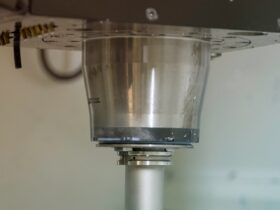The manufacturing industry works with many materials to make end products for consumers. However, many of these applications would be impossible without modern alloys.
Combining metals imbues them with essential properties that make them easier to work with and more reliable. These are the benefits of metal alloys in manufacturing.
Increased Strength
Manufacturers work with metal alloys instead of raw materials because of their increased strength and reliability. Bronze was the first alloy humans created, which combined tin and copper to create a harder and more durable metal than pure iron.
Alloys combine layers of atoms, making them more consistent and lowering the chances that they slip over one another. This process leads to a stronger material. Steel, bronze, and brass are common in industrial and military applications due to their innate durability.
Improved Workability
Another reason manufacturers use alloys in their industrial processes is because they’re malleable and easier to work with than raw metals. Pure metals are difficult to work with, and altering their form and shaping them into usable components is challenging.
While steel is ideal for reinforcing structures, aluminum is common in aerospace and medical applications due to its significant strength-to-weight ratio. For manufacturers, knowing the difference between aluminum and stainless steel is essential for maximizing productivity and creating quality products.
Lower Costs
Alloys give manufacturers a significant advantage when working with metal. Raw materials can be expensive and challenging to work with, leading to waste and inefficiencies. On the other hand, metal alloys combine raw materials to create a more affordable product for users.
Combining cheap metals such as steel and iron with expensive ones can reduce production costs for manufacturing companies. Alloys allow businesses to balance costs while improving performance. They’re also corrosion-resistant, making them perfect for outdoor applications.
Alloys Make Modern Life Possible
While we’ve been working with metal alloys for centuries, the manufacturing process has only recently become cheap enough for mass production.
There are many benefits of metal alloys in manufacturing. Businesses can take more risks and stay competitive in even the most crowded markets by making metals stronger, easier to work with, and more affordable.














Leave a Reply